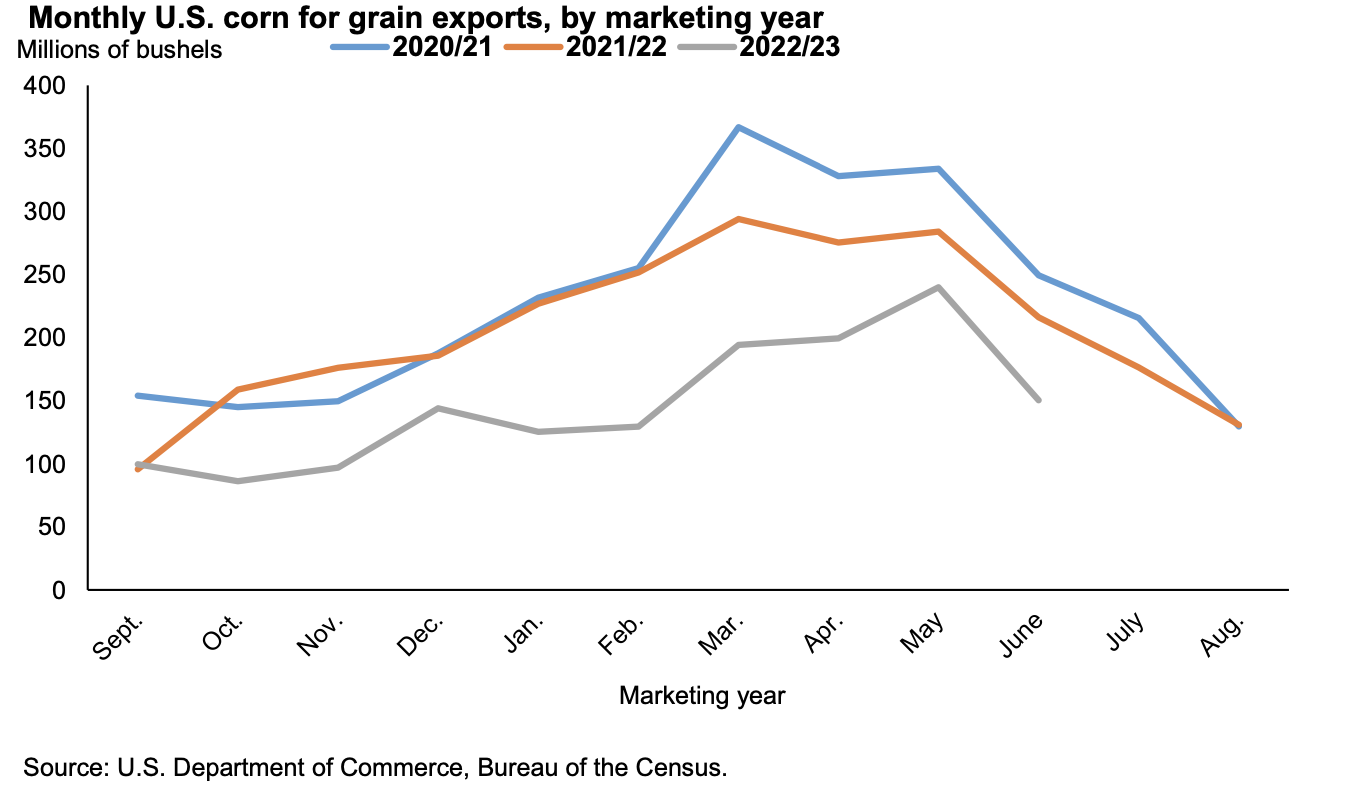Buckle Up: Dispute Panel Called to Action by US in Mexico’s GMO Corn Ban

USDA’s Economic Research Service (ERS) explained this week in its monthly Feed Outlook report that corn exports are reduced 25 million bushels this month to 1.625 billion.
“The weak pace of exports continues into the last quarter of the marketing year, with June exports totaling 150.4 million bushels, down approximately 66 million bushels from June 2022. Corn exports through the first 10 months of the marketing year sit at 1.466 billion bushels,” said ERS in its report.

ERS’s analysis points toward weaker corn exports to close out the marketing year. An announcement from the Office of the U.S. Trade Representative (USTR) on Thursday reveals the U.S.’s GMO corn dispute with Mexico could have something to do with the export decline.
Trade dispute panel called to action in GMO corn ban
USTR shared Thursday it will establish a U.S.-Mexico-Canada Agreement (USMCA) dispute settlement panel as a solution to Mexico’s move to ban GMO corn imports at the beginning of 2023. According to USTR, Mexico’s actions violate the trade agreement.
“Mexico’s approach to biotechnology is not based on science and runs counter to decades’ worth of evidence demonstrating its safety and the rigorous, science-based regulatory review system that ensures it poses no harm to human health and the environment,” says Tom Vilsack, USDA secretary. “Innovations in ag biotechnology play a key role in advancing solutions to our shared global challenges.”
How the USMCA Dispute Process Works
Initially, the U.S. tried to forego a dispute with Mexico through negotiations. Because one-on-one conversations have not remedied the issue, the U.S. began the formal process of a dispute, which includes:
1. Consultations
According to Congress, technical consultations are the initial step in invoking a dispute. USTR took this step in March, which required the U.S. and Mexico to meet within 30 days.
2. Establishing a Dispute Panel
This is the step USTR announced Thursday. At this point, the issue becomes a full-blown trade dispute, and a process will take place to put three to five people on a panel from both Mexico and the U.S.
3. The Panel Process
The elected panel will examine evidence and hear oral testimony from both Mexico and the U.S.
4. Resolving the Dispute
Once the panel delivers a verdict, the party that is found to have violated its obligations under the USMCA will have 45-days to settle the dispute. If a settlement isn't reached in that window, the "winning" party can impose tariffs on the ag products, such as GMO corn.
What the ag industry has to say about Mexico’s GMO corn ban
Leaders at the National Corn Growers Association (NCGA) said they are in support of USTR’s dispute panel move.
“Mexico’s decree, which runs counter to scientific findings and is in direct violation of USMCA, is negatively impacting American corn growers,” said Tom Haag, NCGA president. “U.S. officials have exhausted every avenue trying to resolve this conflict and are left with no other choice but to turn to a third-party panel in hopes of quickly rectifying this issue.”







